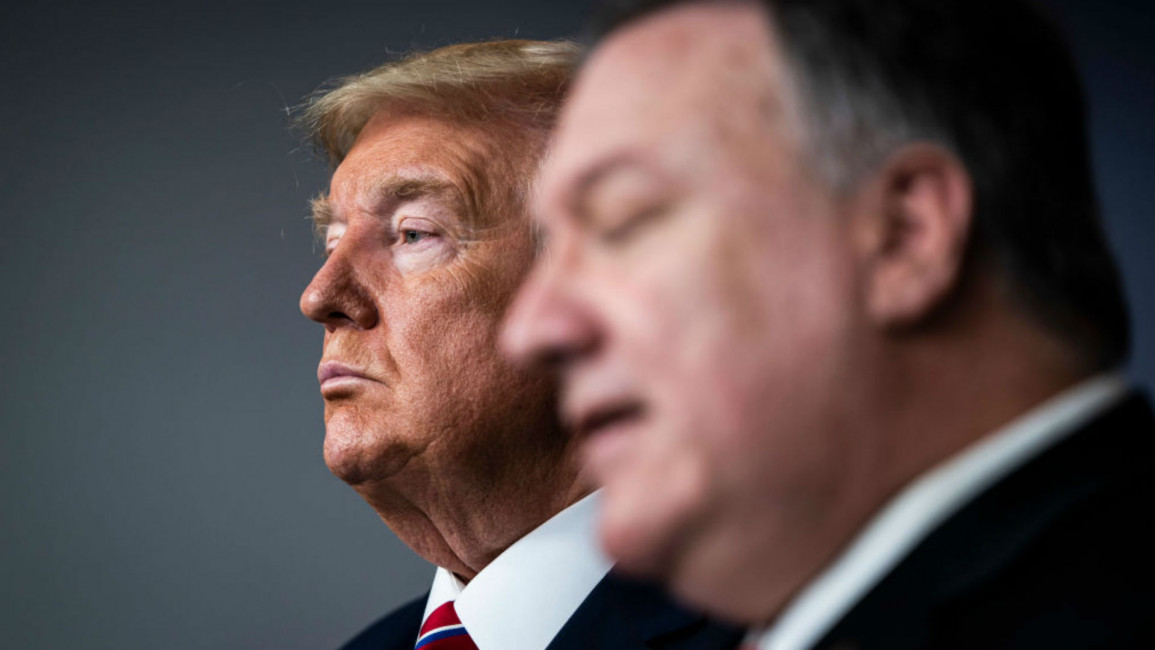Pompeo failed to mitigate Yemen casualties in Saudi arms deal, US report finds
A US State Department report released on Tuesday found that insufficient measures were taken to assess and mitigate the deaths of Yemeni civilians linked to of over $8 billion in Trump administration arms sales to a Saudi Arabia and its allies.
The internal probe cleared US Secretary of State Mike Pompeo of wrongdoing after his use of an emergency procedure to fast-track arms sales in May last year drew sharp criticism from US lawmakers.
It stopped short of taking a position on whether the emergency declaration – presented by Pompeo as essential to contain Iranian "malign activity" via Tehran-backed Houthi fighters in Yemen – was justified.
The relevant law, the Arms Export Control Act (AECA), gave the executive the right to define what constitutes an "emergency", according to the report, cited in The Guardian.
The State Department for its part "did not fully assess risks and implement mitigation measures to reduce civilian casualties and legal concerns", the Inspector General’s report added.
Twitter Post
|
The UN in September accused the US of complicity in war crimes in Yemen - where the Saudi-led coalition has been accused of intentionally starving Yemenis as a tactic of war and killing thousands of civilians in airstrikes carried out by US precision-guided bombs, in charges echoed by Human Rights organizations.
The internal US report published Tuesday conceded that the State Department also regularly approved arms transfers to Saudi Arabia and the United Arab Emirates "that fell below" legal thresholds requiring Congressional notification.
It noted some "4,221 below-threshold arms transfers involving Saudi Arabia and the United Arab Emirates" since January 2017, which went ahead despite a hold on the same types of weapons, including component of precision-guided bombs, when they were part of a larger package.
Then-inspector general Steve Linick led the investigation into Pompeo's declaration of an emergency that permitted the Trump administration to sell the arms and bypass Congress.
Linick was also said to be investigating allegations that Pompeo and his wife used staff for personal favors, such as walking their dog. President Donald Trump fired Linick in May of this year following Pompeo's advice.
Read also: Pompeo aide tried to 'bully' US official into halting Saudi arms deal probe
Linick's acting successor, Stephen Akard, abruptly resigned last week as his office was finalizing the report.
Released Tuesday, the report has an unclassified section with some redactions, and a classified annex which has detailed discussions of civilian casualties, following a claim of "executive branch confidentiality", The Washington Post report.
According to unredacted copy of the public report, State Department staff first proposed the use of emergency authority to bypass congressional restriction in April 2019, two months before Pompeo's notification that emergency action was required.
The other redactions concern the timing of the arms transfers. Investigators found that only four of the 22 packages were delivered by the time of their inquiry last year and were told that that five would not be delivered until 2020 or later.
Lawmakers say this brings into question whether an "emergency" threat from Iran even existed.
"The truth is there was no national security emergency," Senator Bob Menendez of New Jersey, the top Democrat on the Senate Foreign Relations Committee, wrote to Pompeo on Twitter, after the latter said his department had been "fully vindicated" by the report.
"Unless your coddling of the Saudi Crown Prince counts as one," Mendenez added.
Agencies contributed to this report.
Follow us on Facebook, Twitter and Instagram to stay connected



